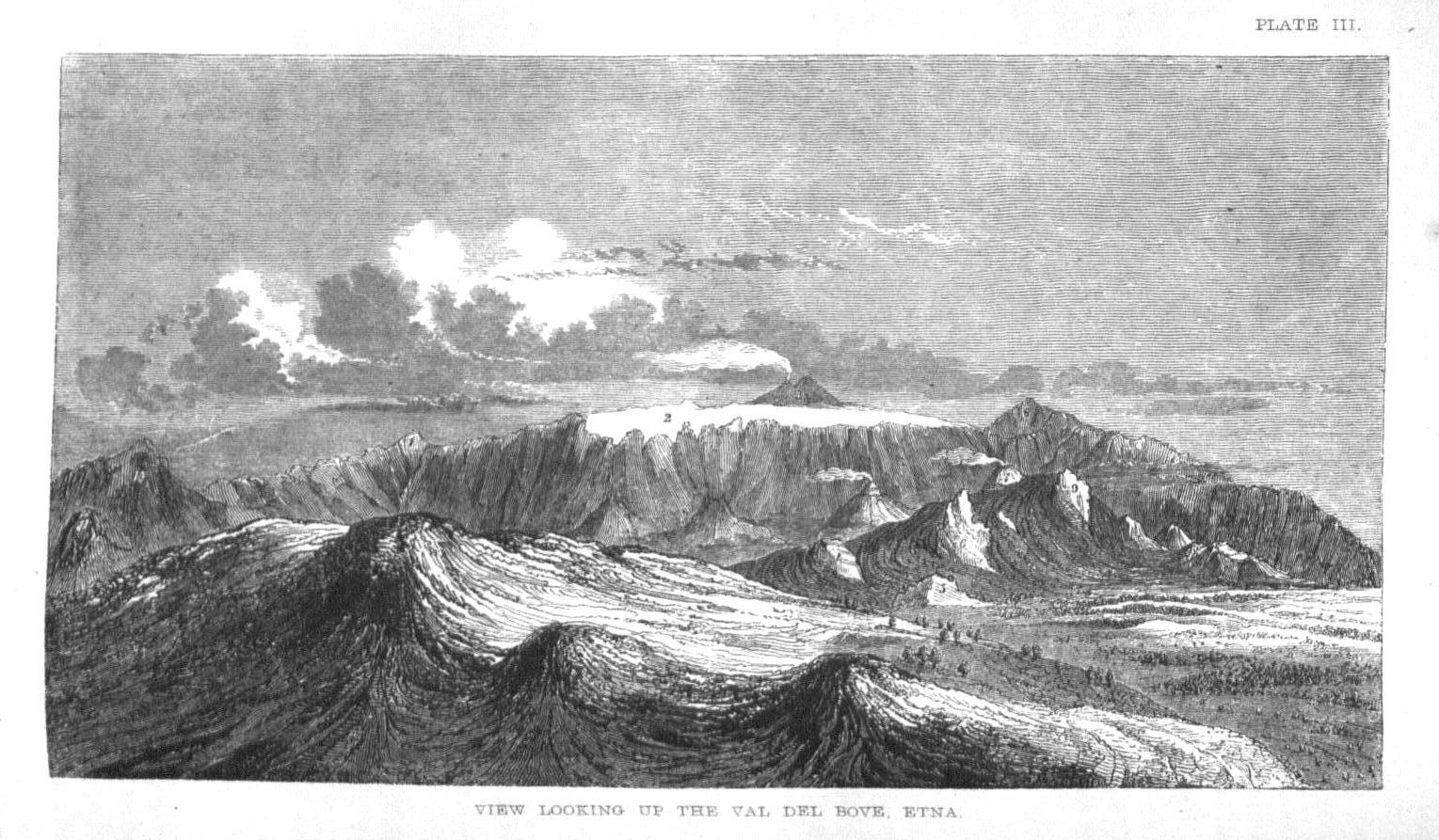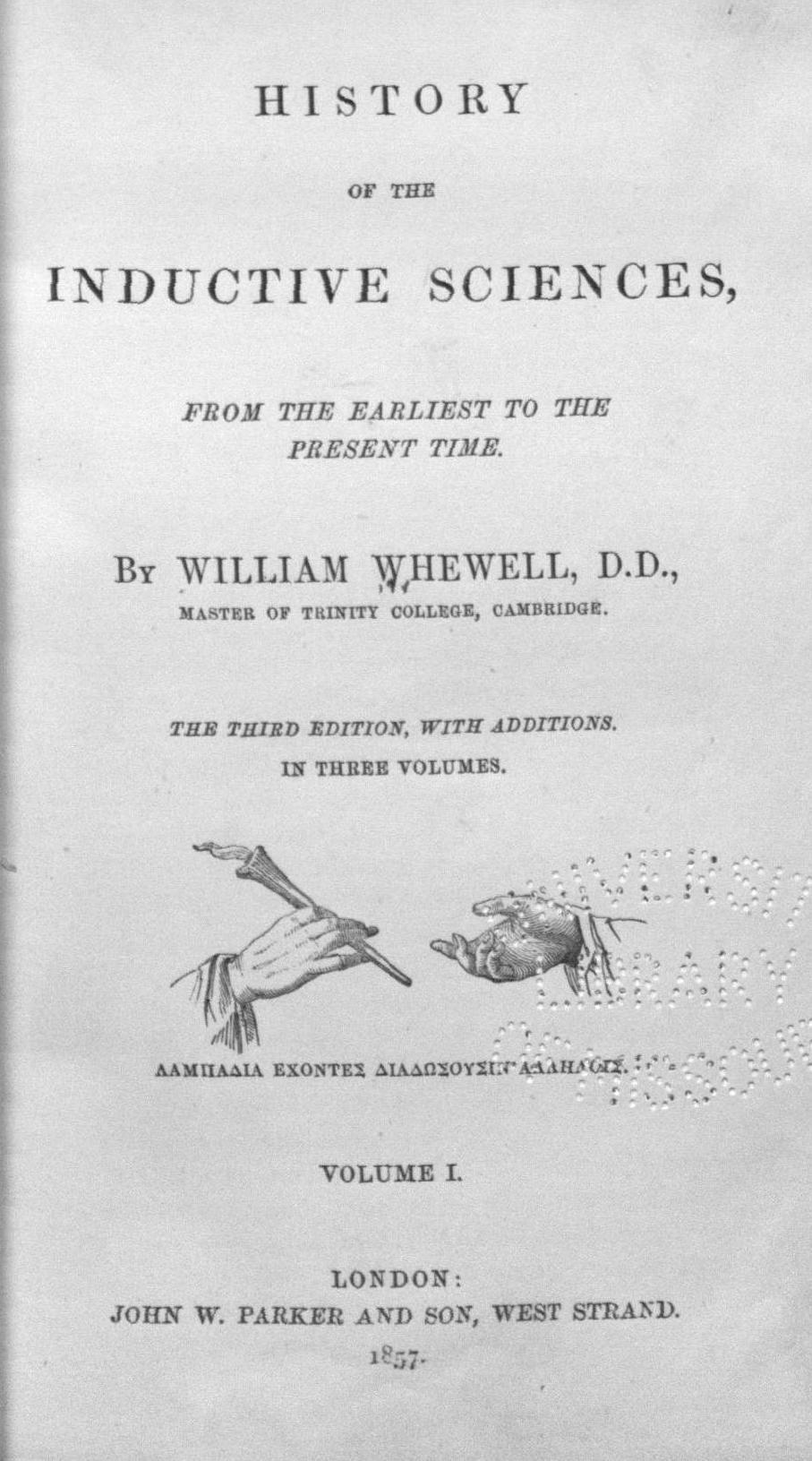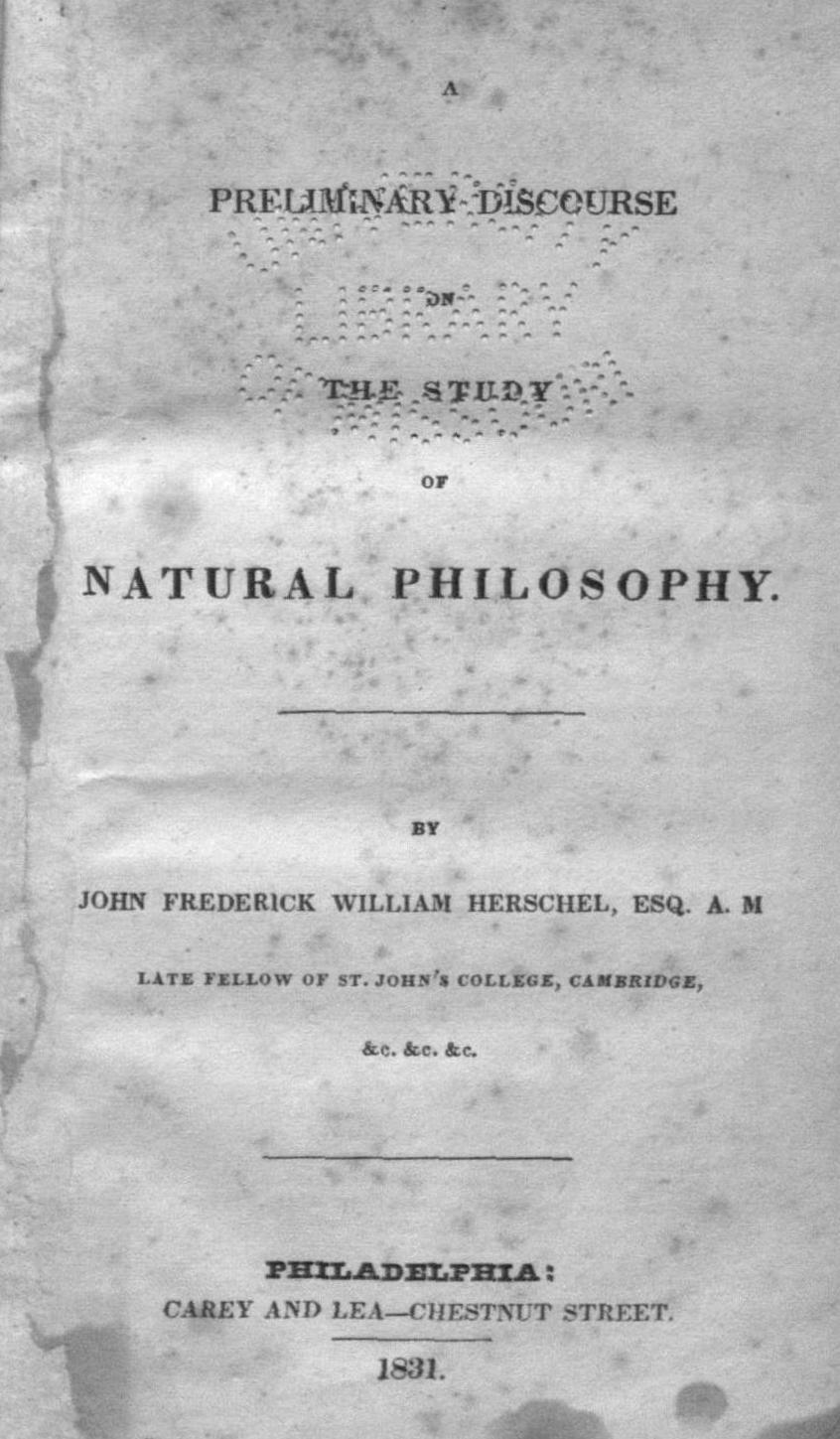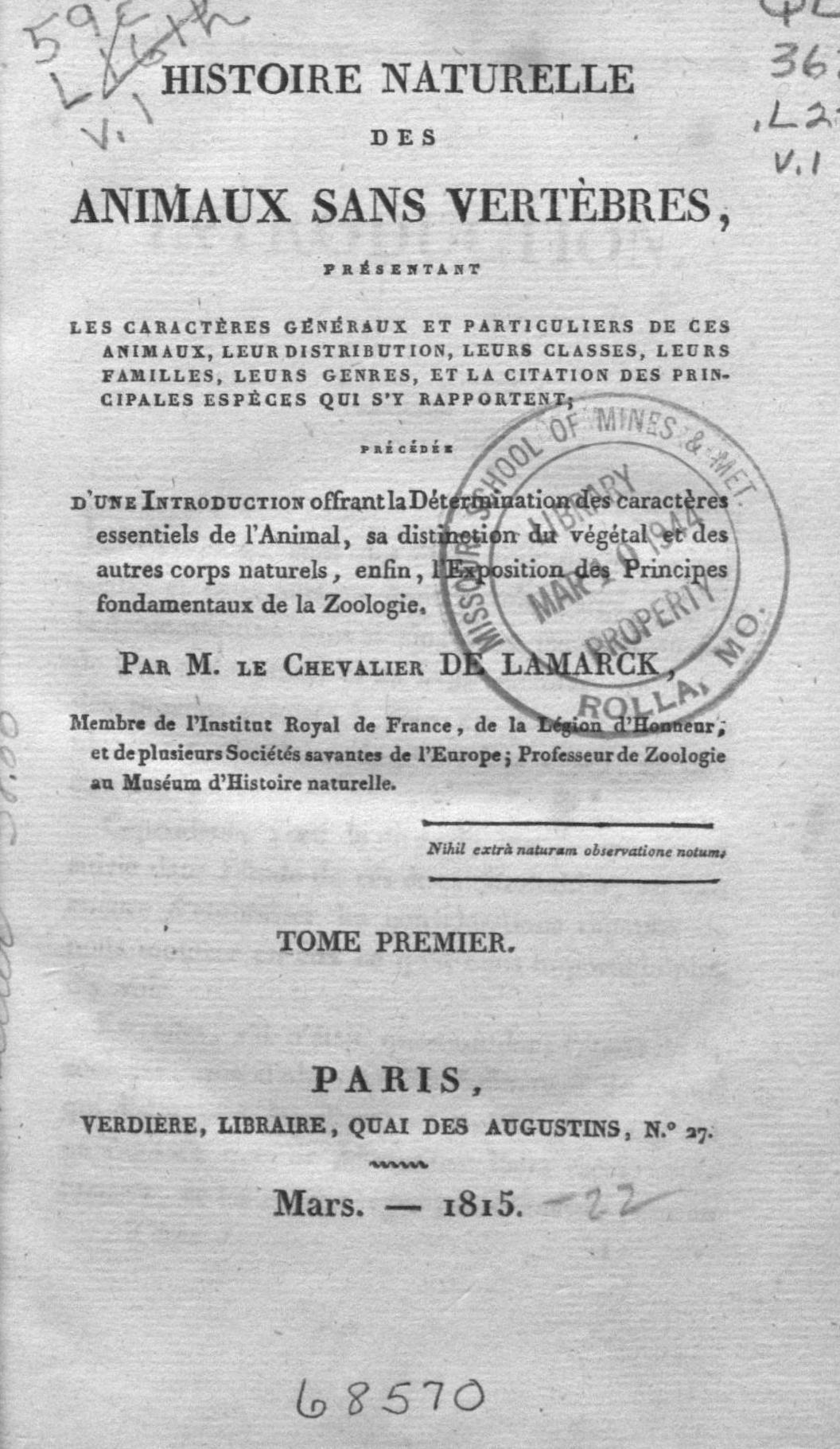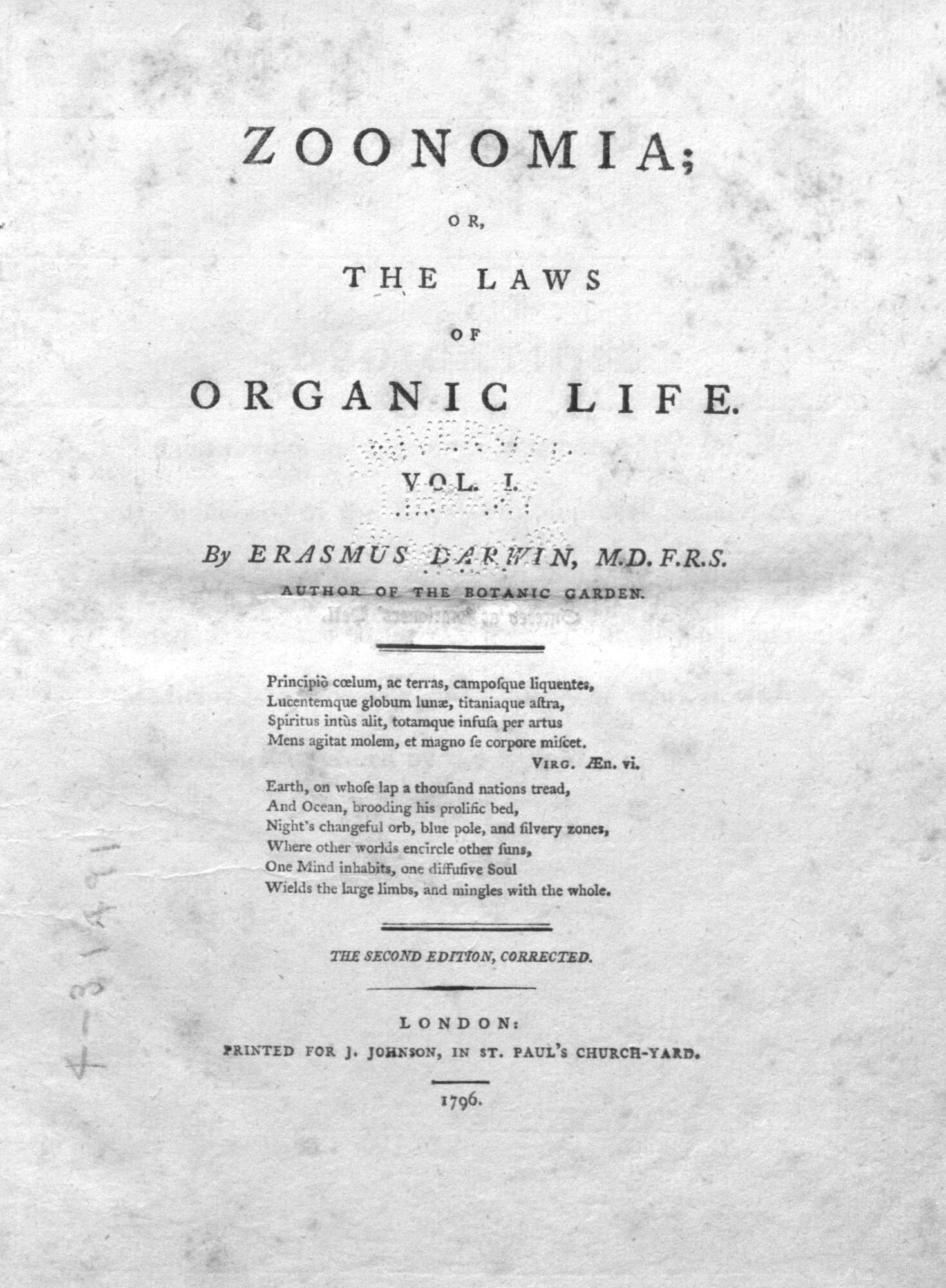150 Years of On the Origin of Species
Species — Their Origins and Adaptations
Charles Darwin was influenced by many of the natural philosophers and empirical naturalists of his and earlier generations, both before and after his voyage on the HMS Beagle.
Darwin took his understanding of how theory and extensive and patient observation worked together to produce valid science from such thinkers as his grandfather Erasmus Darwin, the philosopher and astronomer John Herschel, the geologist Charles Lyell, and the naturalists Alexander Humboldt and Jean-Baptiste Lamarck.
Charles Lyell was an English lawyer, naturalist, and geologist. After leaving the practice of law in the 1820s Lyell became Professor of Geology at King's College, London and spent much of the remainder of his life writing, teaching, and travelling.
Through his many publications—especially the influential book Principles of Geology published in 12 editions during his lifetime—Lyell became the premier geologist of the nineteenth century, influencing not only Charles Darwin but Darwin's mentors at Cambridge.
Lyell championed geological gradualism and refuted catastrophism as an explanation for changes in the earth's surface. On Darwin's departure from England for South America on the HMS Beagle, the ship's captain, Robert Fitzroy, RN, gave him the first volume of the 1st edition of the Principles of Geology.
The arguments made by Lyell helped Darwin conclude that biological variations like geological changes occur slowly over time with many small factors and forces in play. The edition of the Principles of Geology seen here is the 1853 (9th) edition, an expanded version of the 1830 (1st) edition.
William Whewell was an English philosopher, theologian, and Anglican priest who authored many influential books on natural science, theology, logic, and moral philosophy. Among the most influential of the works by Whewell was History of the Inductive Sciences from the Earliest to the Present Time (1837) which Darwin credited with contributing to the scientific method he used in all of his work, especially in The Origin of Species.
Darwin quotes Whewell in the The Origin of Species: "But with regard to the material world, we can at least go so far as this-we can perceive that events are brought about not by insulated interpositions of Divine power, exerted in each particular case, but by the establishment of general laws." Darwin may have used this quotation in The Origin of Species so that it could not be easily said that he was ignoring God's role in creation. Despite Whewell's opposition to the empirical processes of scientific research, Darwin held Whewell in high regard. Darwin may have had a copy of the 1837 (1st) edition of the History of the Inductive Sciences on board the HMS Beagle with him and did have a signed copy in his private library. On display is a copy of the 3rd edition of 1857.
John Frederick William Herschel was an English astronomer, mathematician, natural philosopher, and botanist. He was also one of the most inspiring professors that Darwin encountered during his years at Cambridge University. A Preliminary Discourse on the Study of Natural Philosophy was published in 1831 and had a strong influence on Darwin.
In A Preliminary Discourse Herschel stated his views on balancing observation and theory in uncovering natural laws and argued that these laws are most reliably proven through use of inductive reasoning based upon direct observation. Darwin had a copy of the 1st edition with him on the Beagle and he visited Herschel at the Cape of Good Hope in the course of the voyage of the Beagle.
Darwin pays respect and demonstrates his reverence for Herschel's mind in the opening paragraph of Origin of Species when he refers to Herschel as, "one of our greatest philosophers."
Alexander von Humboldt was a German naturalist, explorer, and inexhaustible writer who is sometimes credited as being the father of biogeography. Humboldt's explorations of South America and the Caribbean islands from 1799 until 1805, and his prolific publishing established him as one of the greatest explorers and naturalists of his time.
Darwin read Humboldt's Personal narrative of travels to the equinoctial regions of America during the years 1799-1804 while still at Cambridge. In his autobiography Darwin credited Humboldt's Personal Narrative and John F. W. Herschel's A Preliminary Discourse on the Study of Natural Philosophy as being of more influence on him than any other books he had read. In his own words these two books "stirred up in me a burning zeal to add even the most humble contribution to the noble structure of Natural Science." While the edition on display here is from 1851, it is likely that Darwin read the 1815 edition of Personal Narrative while at Cambridge.
Jean-Baptiste Lamarck was a French naturalist, botanist, zoologist, and soldier most well-known for his theory of species change caused by the inheritance of acquired characteristics. However, his real contribution is not the identification of the mechanisms or forces that changes species but that changing species could be explained in a systematic and coherent way in accordance with natural law. Lamarck believed that organisms are subject to a force which moves them from simplicity to complexity and environmental forces fine-tune them to fit their biological niche more efficiently. Histoire naturelle des animaux sans vertèbres, présentant les caractères généraux et particuliers de ces animaux published from 1815 to 1922, contains an explanation of Lamarck's theory of evolution and was likely read by Darwin. Although Darwin often dismissed Lamarck's work as "veritable rubbish" and "nonsense," he concedes in a letter to his close colleague and friend J.D. Hooker that "the conclusions I am led to are not widely different from his; though the means of change are wholly so." [letter: C Darwin to J.D. Hooker 1/11/1844]
Erasmus Darwin was an English physician, poet, inventor, and natural philosopher as well as the grandfather of Charles Darwin. The grandson largely dismissed the influence of his grandfather on his theory of species change due to natural selection. The elder Darwin clearly believed in the transformation of species but he credited changes to irritations, sensations, and unconscious forces that allow organisms to acquire characteristics to make them better suited to their environments.
In Zoonomia; or, the Laws of Organic Life . . . (1796), Erasmus Darwin's concept of evolution was more like Jean-Baptiste Lamarck's ideas of acquired characteristics as the mechanism for species change than his grandson's idea of adaptation through natural selection. Erasmus was vague as to the mechanism responsible for change in organisms to permit a more efficient fit into their environment.
